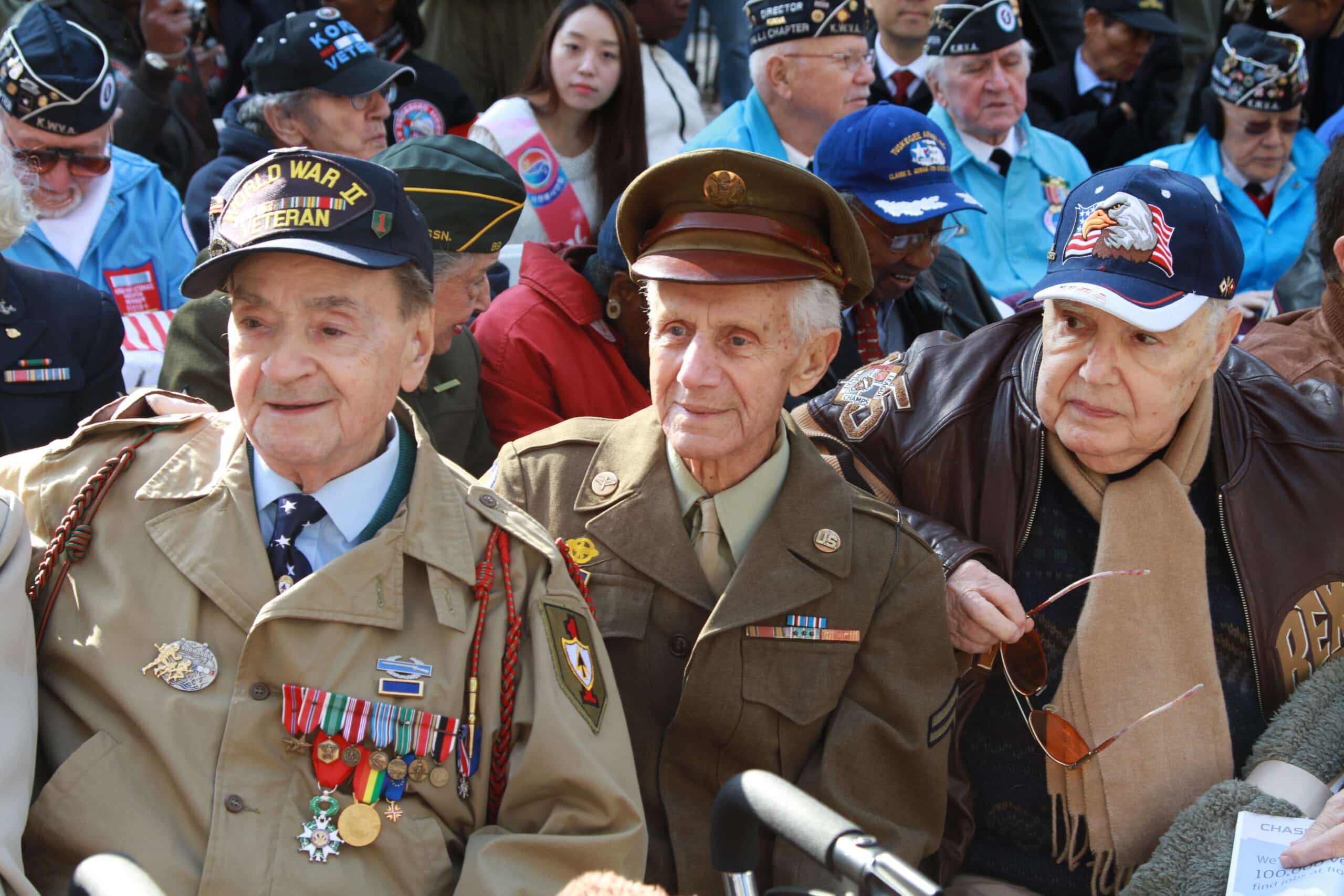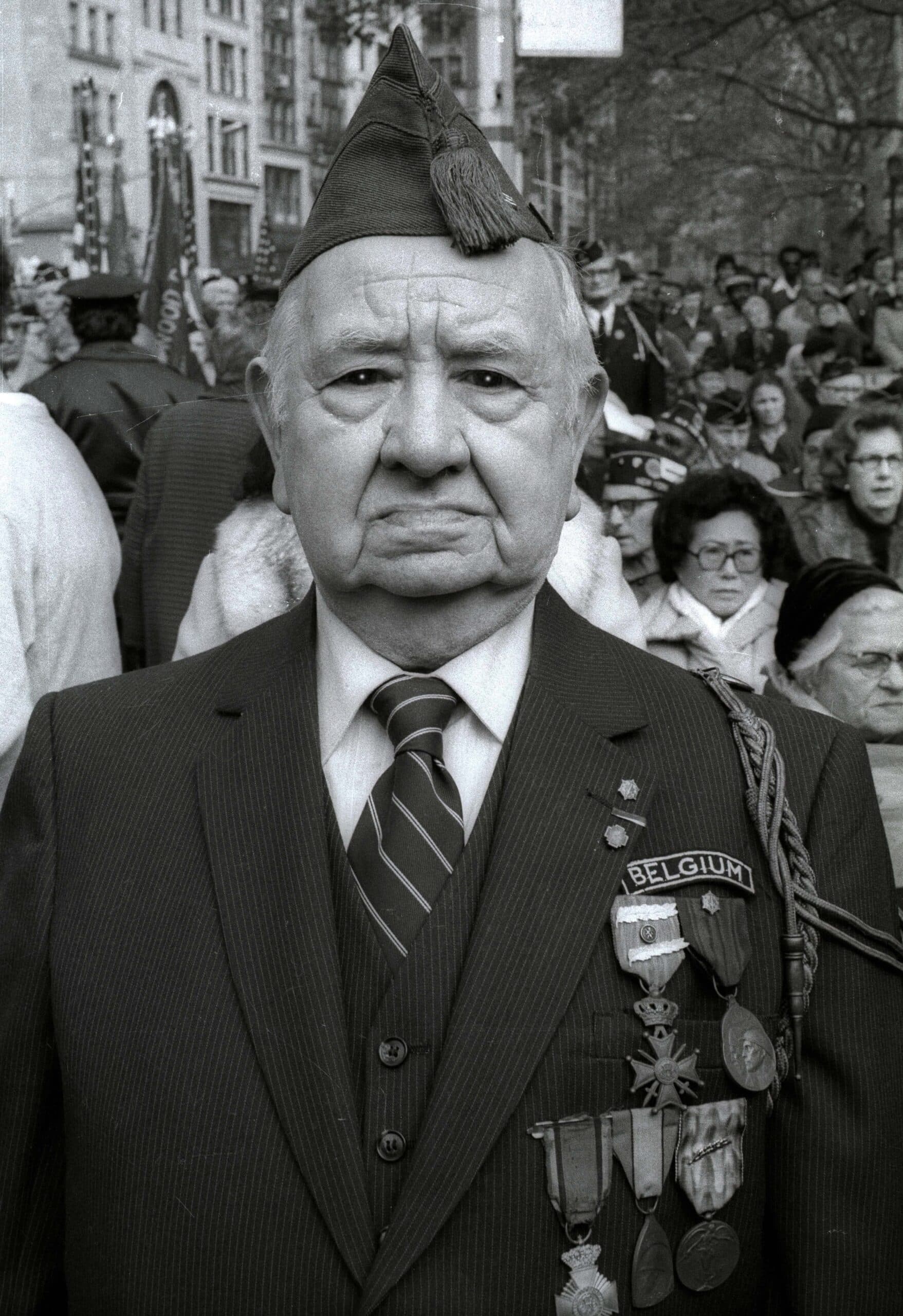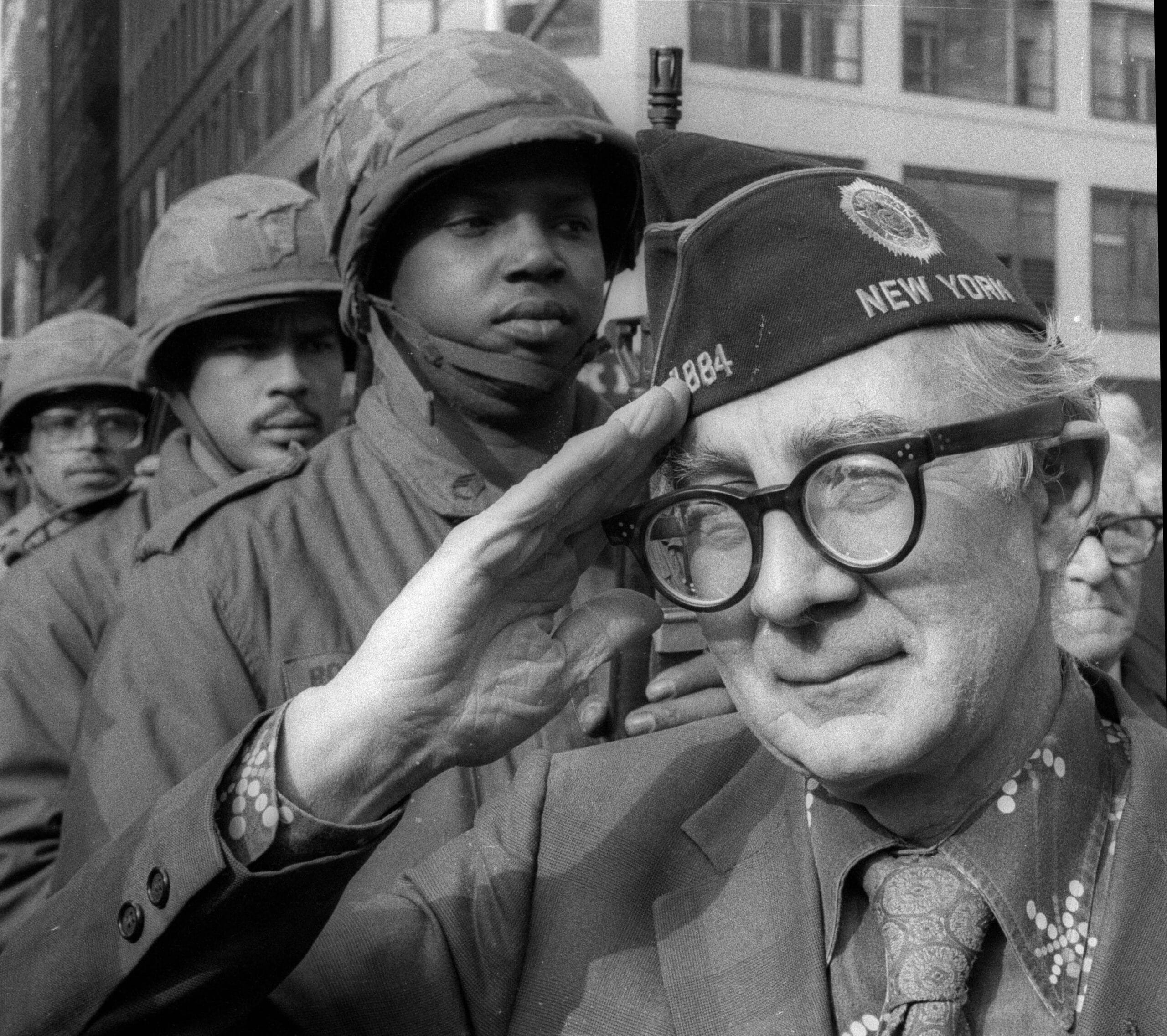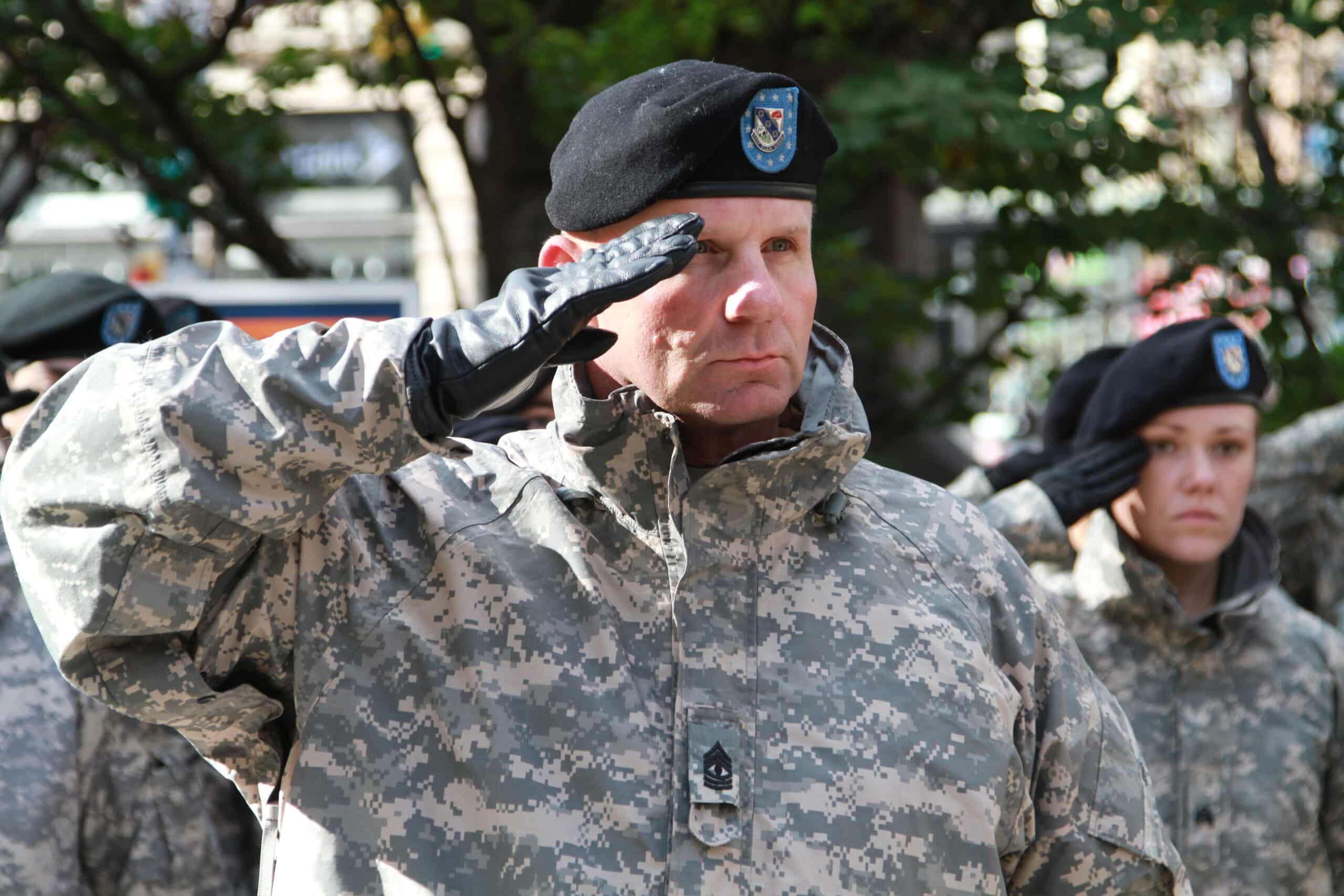by Adam Scull

Veterans Day, originally designated as Armistice Day, commemorates the valor and service of individuals who participated in World War I and those who have served in all conflicts thereafter. Annually observed on November 11th, this day is a poignant tribute to the sacrifices made for freedom, as well as a celebration of the indomitable spirit demonstrated by our veterans. The essence of what it means to be a veteran goes far beyond the battlefield; it encompasses the profound commitment, unwavering dedication, and selfless service rendered to secure the liberties we cherish. These veterans, from diverse backgrounds and walks of life, have woven their personal stories of courage and resilience into the fabric of our nation’s history. Their experiences, ranging from the trenches of historic battlefields to the strategic operations in contemporary conflicts, highlight the physical and emotional sacrifices made in the name of duty. Each story, unique in its details, shares a common thread of an extraordinary commitment to the nation’s values and the well-being of fellow citizens. The commemoration of Veterans Day serves not only as a reminder of the costs associated with our freedoms but also as an opportunity to reflect on the enduring spirit and bravery of those who have donned the uniform in service to their country. Veterans Day, celebrated annually on November 11th, serves as a poignant reminder of the sacrifices and contributions made by veterans towards national security and peace. This day, which began as Armistice Day to commemorate the end of World War I, has evolved to honor the valor and commitment of all veterans who have served in various capacities to safeguard the nation’s freedoms. The transformation from Armistice Day to Veterans Day marked a pivotal shift in the holiday’s focus, expanding its recognition to include veterans of all wars, not just those who served in World War I. This broadened scope ensures that the bravery and sacrifices of all service members are acknowledged, irrespective of the era or conflict in which they served.

The observance of Veterans Day is characterized by nationwide ceremonies, parades, and moments of silence, each acting as a collective expression of gratitude and respect for the veterans and their families. These commemorations are not merely ceremonial but serve as an essential reminder of the cost of freedom and the importance of honoring those who have dedicated their lives to defending it. Beyond the public displays of reverence, Veterans Day also prompts individuals and communities to reflect on the enduring impact of veterans’ service on the fabric of society. It is a day of remembrance, reflection, and renewed commitment to supporting veterans and active service members, acknowledging their unwavering dedication and the significant sacrifices made in the line of duty. Through these acts of recognition and respect, Veterans Day underscores the profound significance of veterans’ contributions to the nation’s history and future. Veterans’ personal narratives are a powerful testament to the spirit of sacrifice and resilience that characterizes their service. Take, for example, the story of Marine veteran Billy Hall, which was shared on a social media platform by the Department of Defense. Hall’s journey of bravery and resilience in the face of adversity is not just his own but reflects the collective experience of many who have served. These stories, rich in courage and determination, serve as a beacon of inspiration and a call to honor the sacrifices made by veterans. By actively listening and sharing these personal accounts, we engage in a meaningful dialogue that bridges the gap between military and civilian life, fostering a deeper understanding and appreciation for the sacrifices our veterans have made. Furthermore, amplifying these narratives does more than just honor the individuals; it educates and enlightens the wider community about the realities of military service and the challenges faced during and after. It’s through these stories that the unyielding spirit of veterans truly shines, showcasing not only their dedication to duty but also their incredible resilience in overcoming the trials of service and reintegration into civilian life. Engaging with these personal narratives encourages ongoing support and recognition within our communities, ensuring that the sacrifices of our veterans are never forgotten but are continually honored and appreciated. The journey from military service back to civilian life is filled with complexities that can pose significant challenges for veterans. Mental health issues, particularly Post-Traumatic Stress Disorder (PTSD), stand out as prevalent concerns that require immediate and thoughtful attention. The U.S. Department of Veterans Affairs, alongside esteemed institutions such as the Yale School of Medicine, spearhead research initiatives aimed at enhancing our understanding and treatment of PTSD and other mental health challenges faced by veterans. This research is vital, not only for developing effective treatment plans but also for fostering a society that is better equipped to support the mental well-being of its returning service members.

In addition to mental health struggles, reintegration into civilian life often brings about unique obstacles for veterans, such as finding employment, adjusting to a non-military routine, and reconnecting with family and community in a meaningful way. The stark contrast between military and civilian lifestyles can leave veterans feeling isolated and misunderstood, underscoring the importance of creating tailored assistance programs. These programs, coupled with community engagement initiatives, play a crucial role in easing the transition for veterans. By actively working to remove barriers to reintegration, we can ensure that veterans receive the respect, support, and opportunities they deserve as they embark on their post-service lives. The act of honoring and supporting veterans is a duty that spans all 365 days of the year, not just on Veterans Day. It’s a continuous commitment to acknowledging the immense sacrifices made and the invaluable contributions provided by those who have served. This recognition goes far beyond mere acknowledgment; it involves a proactive stance in advocating for the resources that veterans so crucially need upon their return to civilian life. Mental health resources are paramount among these, as the battle scars carried home are not always visible. Employment opportunities that recognize and utilize the unique skills and leadership qualities veterans possess are just as vital. Furthermore, social integration programs play a crucial role in easing the often challenging transition from military to civilian life, ensuring that veterans feel supported and valued within their communities. Expressing our gratitude and respect for veterans can manifest in various impactful ways. From participating in commemorative events that honor their service and sacrifice to engaging more directly with organizations dedicated to veterans’ welfare, every action counts. One compelling example of showing support is through volunteering with veterans’ initiatives, offering one’s time and skills to directly impact the lives of those who have served. Another powerful gesture is the simple act of listening to their stories, providing a platform for veterans to share their experiences and be heard. Such interactions not only affirm our appreciation for their service but also foster a deeper understanding of the challenges they face, thus driving home the importance of our support and recognition. By actively participating in these and other forms of engagement, we can all contribute to a culture that truly honors and uplifts our veterans year-round. In the digital age, technology plays a pivotal role in honoring and recognizing the sacrifices of veterans. AI-powered platforms, such as ChatFAI, have revolutionized the way we access and engage with the rich histories and personal narratives of those who served. By using natural language processing to converse with users, ChatFAI offers an interactive and immersive experience, making the stories of veterans more accessible to a broader audience. This technology not only preserves the legacy of veterans but also educates the public on the complexities and challenges of military service, fostering a deeper sense of empathy and appreciation.

Social media platforms like Instagram have also emerged as significant avenues for honoring veterans. By sharing stories of bravery and resilience, such as the compelling narrative of Marine veteran Billy Hall, these platforms amplify the voices of veterans, ensuring their experiences resonate with a global audience. The power of visual storytelling, combined with the reach of social media, creates a unique opportunity for collective remembrance and gratitude. Moreover, hashtags and social campaigns associated with Veterans Day and similar observances encourage active participation from the community, further bridging the gap between veterans and civilians. This synergy of technology and social media enhances public awareness and ensures the sacrifices of veterans are acknowledged and celebrated not just on designated holidays, but year-round. The profound sacrifices and unwavering commitment demonstrated by veterans throughout history highlight a pivotal aspect of our national identity—valuing and upholding a culture deeply rooted in gratitude, support, and remembrance for those who have served. Beyond the ceremonial observances and symbolic gestures, the essence of honoring veterans lies in recognizing their unyielding spirit. This spirit, characterized by immense resilience, courage, and an unwavering dedication to preserving the freedoms and values we cherish, continues to inspire and shape our collective consciousness. As a society, it is our duty to ensure that the sacrifices made by veterans are never forgotten but are instead celebrated and integrated into the fabric of our daily lives. Our commitment to recognizing and honoring veterans must transcend the boundaries of designated holidays and become a continuous endeavor. This involves actively participating in initiatives that support their well-being, ensuring their seamless reintegration into civilian life, and fostering environments where their contributions are acknowledged and respected. Through educational programs, community-based support systems, and policies aimed at addressing the unique challenges faced by veterans, we can contribute to building a more inclusive and supportive society. By embracing the enduring legacy of veterans’ sacrifices, we reaffirm our commitment to not only remember their service but also to act upon the values for which they stood, thereby honoring their contributions in the most meaningful way possible.
